Related Research Articles

The Partition of India in 1947 was the change of political borders and the division of other assets that accompanied the dissolution of the British Raj in the Indian subcontinent and the creation of two independent dominions in South Asia: India and Pakistan. The Dominion of India is today the Republic of India, and the Dominion of Pakistan—which at the time comprised two regions lying on either side of India—is now the Islamic Republic of Pakistan and the People's Republic of Bangladesh. The partition was outlined in the Indian Independence Act 1947. The change of political borders notably included the division of two provinces of British India, Bengal and Punjab. The majority Muslim districts in these provinces were awarded to Pakistan and the majority non-Muslim to India. The other assets that were divided included the British Indian Army, the Royal Indian Navy, the Royal Indian Air Force, the Indian Civil Service, the railways, and the central treasury. Provisions for self-governing independent Pakistan and India legally came into existence at midnight on 14 and 15 August 1947 respectively.
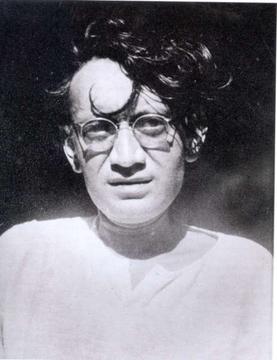
Saadat Hasan Manto was a Pakistani writer, playwright and author who was active in British India and later, after the 1947 partition of India, in Pakistan.

Baldev Raj Chopra was a prolific Indian director and producer noted for pioneering the Hindi film industry and television series. He's known for directing notable films, such as Afsana, Ek Hi Raasta, Naya Daur, Sadhna, Kanoon, Gumrah, Hamraaz, Dhund, Pati Patni Aur Woh, Insaf Ka Tarazu and Nikaah. He also produced hit films, including Dhool Ka Phool, Waqt, Ittefaq, Aadmi Aur Insaan, Chhoti Si Baat, The Burning Train, Aaj Ki Awaaz, Baghban and the TV series, Mahabharat. He was awarded Dadasaheb Phalke Award, India's highest award in cinema, for the year 1998, and Padma Bhushan, India's third highest civilian award, in 2001.
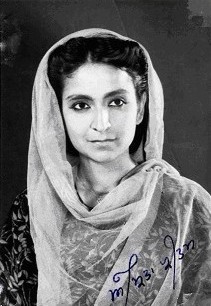
Amrita Pritam was an Indian novelist, essayist and poet, who wrote in Punjabi and Hindi. A prominent figure in Punjabi literature, she is the recipient of the 1956 Sahitya Akademi Award. Her body of work comprised over 100 books of poetry, fiction, biographies, essays, a collection of Punjabi folk songs and an autobiography that were all translated into several Indian and foreign languages.

Mysore Shrinivas Sathyu is a film director, stage designer and art director from India. He is best known for his directorial Garm Hava (1973), which was based on the partition of India. He was awarded Padma Shri in 1975.

Baldev Singh was an Indian Sikh political leader, he was an Indian independence movement leader and the first Defence Minister of India. Moreover, he represented the Punjabi Sikh community in the processes of negotiations that resulted in the independence of India, as well as the Partition of India in 1947.
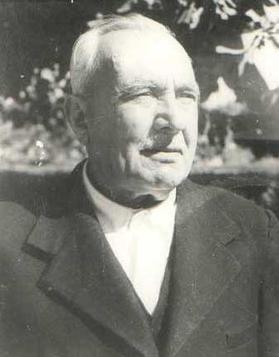
Khan Abdul Jabbar Khan, popularly known as Dr. Khan Sahib, was a pioneer in the Indian Independence Movement and later, a Pakistani politician. He was the elder brother of the Pashtun activist Abdul Ghaffar Khan, both of whom opposed the partition of India. Upon independence, he pledged his allegiance to Pakistan and later served as the First Chief Minister of West Pakistan.
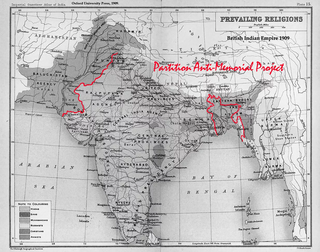
The Partition of India and the associated bloody riots inspired many creative minds in the republics of India, Pakistan, and Bangladesh to create literary/cinematic depictions of this event. While some creations depicted the massacres during the refugee migration, others concentrated on the aftermath of the partition in terms of difficulties faced by the refugees in both side of the border. Even now, more than 60 years after the partition, works of fiction and films are made that relate to the events of partition. W.H. Auden in his poem "Partition" showed the dilemmas of Cyril John Radcliffe, 1st Viscount Radcliffe, responsible for deciding which parts of India went where.
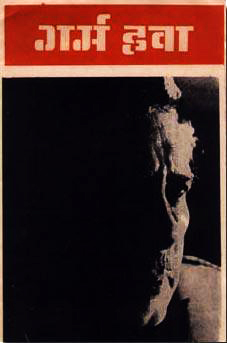
Garm Hava is a 1973 Indian drama film directed by M. S. Sathyu, with Balraj Sahni as the lead actor.

Bhabhi is an Indian Hindi language soap opera which aired on StarPlus from 18 March 2002 to 23 May 2008 during weekday afternoons. The series was produced by UTV Software Communications.
The Delhi–Lahore Bus, officially known as Sada-e-Sarhad, is a passenger bus service connecting the Indian capital of New Delhi, Delhi with the city of Lahore, Pakistan via the border transit post at Wagah near Attari. The Routemaster bus number 10 was of symbolic importance to the efforts of the governments of both nations to foster peaceful and friendly relations. In its inaugural run on 19 February 1999, the bus carried the then-Indian Prime Minister Atal Bihari Vajpayee, who was to attend a summit in Lahore and was received by his Pakistani counterpart, Nawaz Sharif at Wagah. In August 2019 Pakistan decided to stop the service in the wake of India revoking Jammu and Kashmir's special status.
Transport between India and Pakistan has been developed for tourism and commercial purposes and bears much historical and political significance for both countries, which have possessed few transport links since the partition of India in 1947. In 2019, all public transport links between the two countries were severed because of Pakistani protest at India's revocation of the special status of Jammu and Kashmir. The only way for travelers to make this journey is to cross on foot at Wagah.
Indians in Pakistan typically refers to Indian nationals working, studying or generally residing in Pakistan as expatriates. It also includes Indian emigrants to Pakistan, Indian spouses married to Pakistanis and Muhajirs.
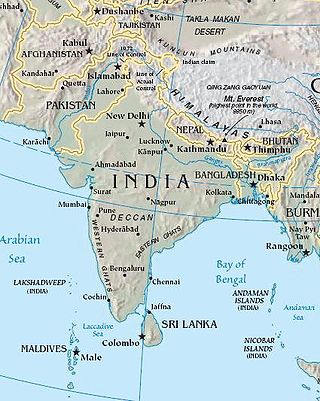
After the 2008 Mumbai attacks, Pakistan and the ISI were believed by India to be directly responsible for the attacks, leading to strained relations between the two countries for a period of time. An Anti-Pakistani sentiment also rose in India, causing many, including the United States to call for probes into it.

Pir Syed Jamaat Ali Shah was a Pakistani author, Islamic scholar and Sufi saint of the Naqshbandi Order. He presided over the All India Sunni Conference and led the Movement for Shaheed Ganj Mosque. He was a contemporary of Ahmed Raza Khan Barelvi, the founder of Barelvi movement.

Modern Standard Hindi is mutually intelligible with Urdu, the national and official language of Pakistan. Both are standard registers of the Hindustani language. As a result of linguistic and cultural similarities, Hindi has had notable influences in Pakistan and is taught as an academic subject in some institutions; before the partition of colonial India, Hindi was taught at major universities in the provinces that came to form Pakistan. While Hindi and Urdu both have a predominantly Indic (Indo-Aryan) base, Hindi uses more Sanskrit words in its educated vocabulary while Urdu incorporates more Arabic, Persian, and a few Turkic words for the same. Most poetry, ghazals, qawalis & lyrics use many Urdu words.
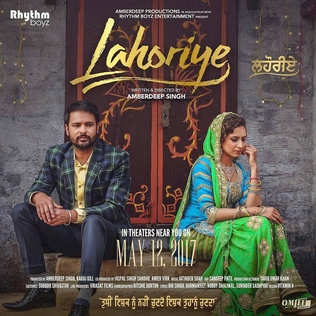
Lahoriye is a 2017 Indian-Punjabi drama film written and directed by Amberdeep Singh. It stars Amrinder Gill, Sargun Mehta, Yuvraj Hans, Nimrat Khaira, Sardar Sohi and Guggu Gill.

Amit Ravindernath Sharma is an Indian film and advertisement director and producer. In feature films, he is best known for producing and directing the 2018 National-award winning film Badhaai Ho, which was one of the highest grossing Bollywood films of 2018, having earned ₹220.34 crore as of December 2018. His latest release, Maidaan (2024) won the Best Asian Film Award at the prestigious Septimius Awards 2024.
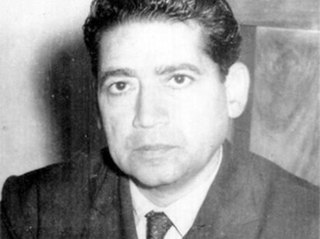
Feroz Nizami, was a Pakistani film score composer, music director and classical singer.
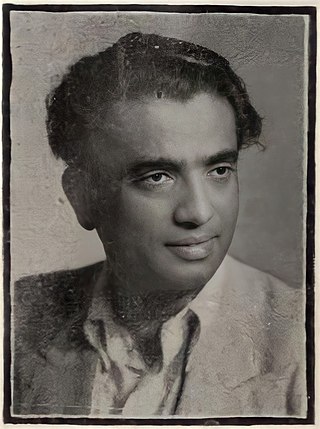
Shaikh Muhammad Yusuf, known professionally as S. M. Yusuf, was a Pakistani film director and producer. He made fourteen films in British India and later after the split of India subcontinent, he worked in Pakistani cinema and made thirteen films, including a B/W film Aulad (1962) and a blockbuster film titled Saheli (1960).
References
- 1 2 Agarwall, Malini (15 November 2013). "Have You Watched the Google Search Reunion?". Malini Agarwal.
- 1 2 3 Johnson, Kay (15 November 2013). "Google ad an unlikely hit in both India, Pakistan by referring to traumatic 1947 partition". ABC News/Associated Press.
- ↑ Rangaswami, Anant (13 November 2013). "Exclusive: Watch Google's moving TVC on the power of search". First Post (India). Archived from the original on 14 November 2013.
- 1 2 Bhowmick, Nilanjana (14 November 2013). "Why Indians and Pakistanis Find This Ad Incredibly Moving". Time .
- 1 2 "Google reunites 2 friends separated by Partition in new tearjerker ad". India Today . 14 November 2013.
- 1 2 "Emotional Google ad reunites friends split by India-Pakistan partition". The Globe and Mail . 14 November 2013.
- ↑ Ahmed, Talha (14 November 2013). "Google ad connects India-Pak with heartwarming reunion story". The Express Tribune .
- ↑ Naqvi, Sibtain (19 November 2013). "Google can envision Pakistan-India harmony in less than 4 minutes…can we?". The Express Tribune .
- ↑ PTI (15 November 2013). "Google reunion ad reignites hope for easier Indo-Pak visas". Deccan Chronicle .
- ↑ Chatterjee, Rhitu (20 November 2013). "This ad from Google India brought me to tears". Public Radio International.
- 1 2 Peter, Sunny (15 November 2013). "Google Search: Reunion Video Touches Emotions in India, Pakistan; Goes Viral [Watch VIDEO]". International Business Times .
- ↑ "Google's India-Pak reunion ad strikes emotional chord". The Times of India . 14 November 2013. Archived from the original on 17 November 2013.
- ↑ "This Google ad has moved people to tears across India and Pakistan". The World from PRX. Retrieved 16 August 2022.
- ↑ Pak Sar Zameen Productions, Respect. Directed by Taha Kirmani and available on YouTube. Kirmani also has a 2013 video comparing his film with the ad, Google Reunion Ad Inspired from Pak Sar Zameen Productions Short Film.
- 1 2 3 4 Lakhe, Amruta (15 November 2013). "Searching For Memories". The Indian Express .
- ↑ Choudhury, Soumyadip (14 November 2013). "Watch: Google pitches emotion in separated-by-Partition-united-by-Google ad". CNN-IBN. Archived from the original on 14 November 2013.
- ↑ "Emotional Google Ad on India, Pakistan partition goes viral". The Star (Malaysia) . 17 November 2013. Archived from the original on 19 November 2013. Retrieved 18 November 2013.
- ↑ Fisher, Max (15 November 2013). "This powerful video is dominating Indian social media. Here's why". The Washington Post .
- ↑ Singh, Ritu (15 November 2013). "Google Search: Reunion Video goes viral, reconnects India-Pakistan". Zee News.
- ↑ Sethi, Mrigaa (14 November 2013). "Google's trick for winning over Indians: Make them cry". Quartz (publication) .